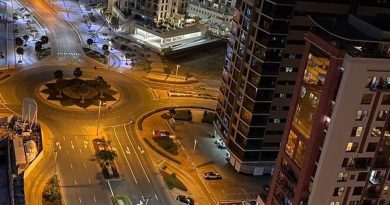UK decries France’s seizure of fishing boat as post-Brexit row deepens
London (Reuters) – Britain denounced France’s seizure of a British boat in French waters and warned Paris against further retaliation on Thursday, in a rapidly deteriorating row over post-Brexit fishing rights.
The Cornelis Gert Jan, a scallop dredger, was escorted to the northern port of Le Havre overnight after its crew failed to prove it was allowed to fish in French territorial waters, French Seas Minister Annick Girardin said.
A second British vessel was given a verbal warning.
The action signalled France’s determination not to back down in the row, a day after listing against Britain if there is no progress in talks.
They include extra customs checks on British goods from Nov. 2 and what was widely seen in London as a threat to cut electricity exports to Britain if talks fail.
“It’s not war, but it is a fight,” Girardin told RTL radio.
Britain’s foreign minister, Liz Truss, responded by ordering France’s ambassador to London to explain on Friday the “disappointing and disproportionate threats made against the UK and Channel Islands.”
British fishing grounds are among the richest in the North East Atlantic where most of the European Union’s catch is hauled in. France’s actions appear to be a warning shot to put pressure on Britain to compromise at talks with the EU.
British environment minister George Eustice challenged France’s statement that the boat had no licence. He told parliament France’s threatened steps appeared to be incompatible with a post-Brexit free-trade agreement and international law.
“…if carried through, (they) will be met with an appropriate and calibrated response,” he said.
France says Britain has refused to grant its fishermen the full number of licences to operate in British waters that France says is warranted. Britain says it is issuing licences to vessels that meet its criteria.
“So now we need to speak the language of strength since that seems to be the only thing this British government understands,” European Affairs Minister Clement Beaune told CNews television channel.
Girardin made clear France could not cut off electricity supplies to Britain as a retaliatory measure but said it could raise tariffs. Britain was importing about 6% of its electricity supply from France on Thursday, data showed.
Jersey, a self-governing British Crown Dependency 14 miles off the French coast, said it was “extremely disappointed” at France’s announcement as Jersey officials had met officials from France, the UK and the European Commission on Wednesday.
“The outcome of that meeting was that 162 French vessels will be licensed to fish in Jersey’s territorial waters from this Friday”, Jersey’s government said.
Vessel Impounded
Extra customs checks on goods travelling between Britain and the rest of Europe could disrupt trade flows before Christmas.
The EU’s executive body said it would continue talks with Britain and France in the coming days.
The Cornelis Gert Jan’s skipper is under preliminary investigation for dredging 2,160 kg (4,762 lb) of scallops and could face a 75,000-euro ($87,500 fine). Its owners said the vessel had a fishing licence and had been fishing legally.
“We are a pawn of bigger forces here. This is to do with licences and the beef that the French have with the licences of French vessels,” Andrew Brown, a director of Macduff Shellfish, told Reuters.
Barrie Deas, head of Britain’s National Federation of Fishermen’s Organisations, said France appeared determined to escalate the licence row before a presidential election, with President Emmanuel Macron expected to seek a new term in April.
In a sign Britain might offer more licences, Bruno Margolle, head of the Boulogne fishermen’s collective, said 15 of the 37 licence requests from his region previously shown as rejected had passed to ‘under consideration’ since the boat was held.
Senior British, French and EU officials have signalled they do not want the dispute to escalate, but Macron and Johnson are under pressure from vocal fishing lobbies.
Britain’s Brexit minister, David Frost, chaired a ministerial meeting on Thursday to consider a response to France’s measures, a British government spokesman said.
The industry makes a small contribution to the French and British economies but is a lifeline for some coastal communities.
In Le Havre, scallop fishermen said they were fed up with British vessels enjoying what they called unfair access to shellfish in French waters.
“There has to be an end to this fraud,” Pascal Coquet, president of the National Scallop Fishermen’s Committee, said.



